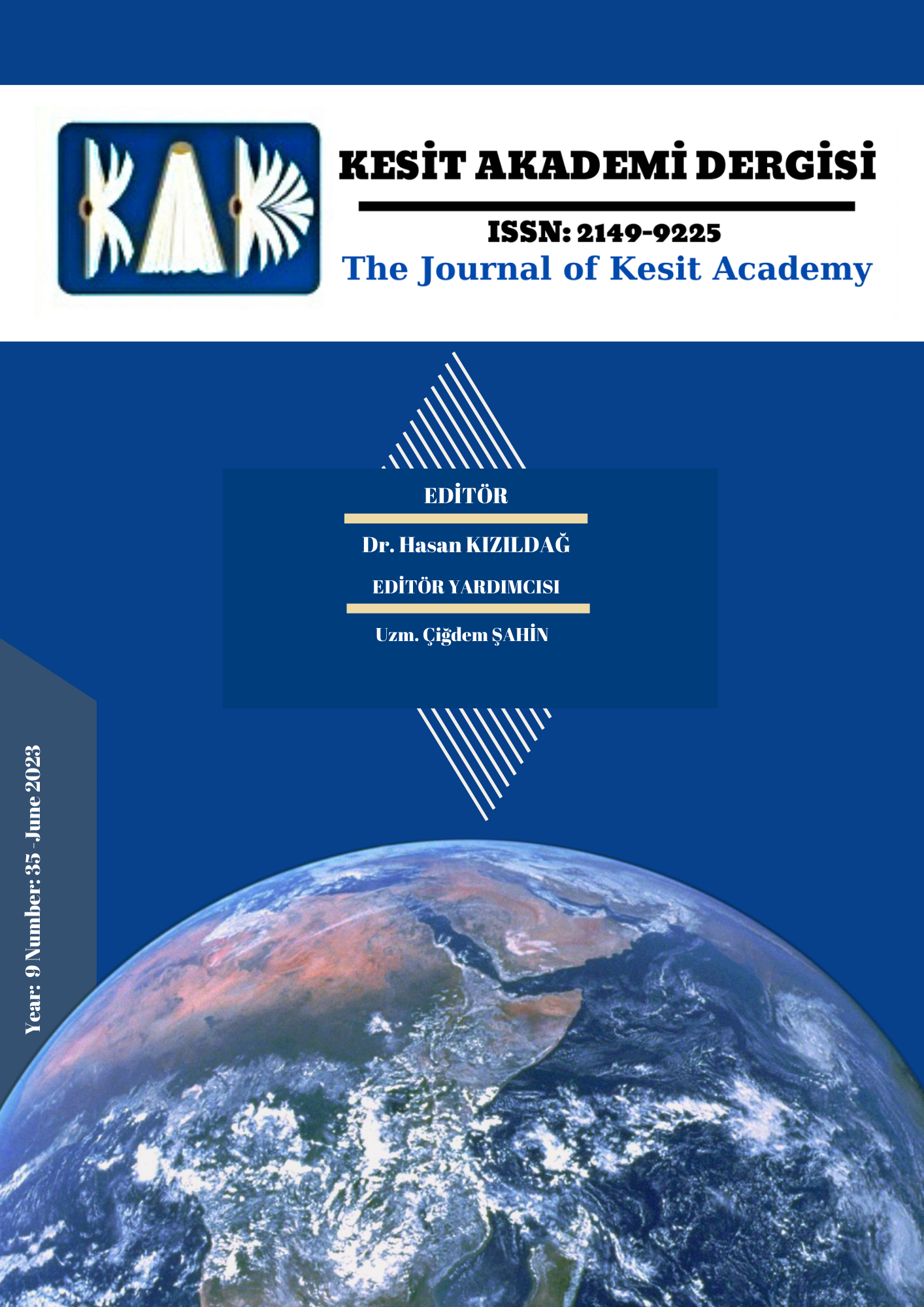Author :
Abstract
Millî Edebiyat Dönemi yazarlarından olan Refik Halid Karay, roman ve öykü başta olmak üzere yergi, anı ve kronik türde kaleme aldığı yapıtlarla tanınan bir yazın insanıdır. Yazarın yalın ve duru bir Türkçeyle kaleme aldığı ve adıyla özdeşleşen Memleket Hikâyelerinde Türk aydını ve hükümet tarafından unutulmuş Anadolu insanının yaşamı anlatılır. Bu kitapta yer alan Yatık Emine isimli öykü Refik Halid Karay’ın çok tartışılan ve ses getiren öykülerinden biridir. Öyküde bürokrasi, memuriyet, kadın ve sürgün izlekleri din, vicdan, ahlak olguları üzerinden düşkün bir kadın odağında ele alınır. Yazar kadını toplumsal cinsiyet kalıplarının ona biçtiği rollerin önyargılarla kesişmesi düzleminde yansıtır. Öyküde kökleşik değerlerin öngördüğü biçimde aileye bağlı, özverili, namuslu bir kadın idealize edilir. Toplumsal ahlak kavramına eleştiri getiren öyküde namus kavramı doğrudan kadının iffetine bağlanırken, kadının cinselliği toplumsallaşan bir kavrama dönüşür. Felaketlerin ve yaşanan olumsuzlukların sebebi ve sorumlusu olarak görülen düşkün kadın imgesi olarak vücut bulan öykünün başkişisi Emine, yalnızca sosyal dışlanmışlığa uğramakla kalmaz maruz kaldığı sözel ve fiziksel şiddete de boyun eğer. Öyküde eril hakimiyet güç ilişkisiyle güçlendirilirken, ikincil konuma itilen kadın öğrenilmiş bir çaresizlikle toplumsal cinsiyetin öngördüğü biçimde yaşamaya itilir. Yazar ekonomik, psikolojik, sözel ve fiziksel şiddeti fahişe kadın imgesiyle haklı gösteren ve/veya meşrulaştıran eril düşünce sistemini sosyal, yasal ve ahlaki açıdan eleştirir. Öykü böylesi bir sosyal sorunu yüzyıl öncesinden kadın ve kadın sorunlarının yazında görünür kılınmasına katkıda bulunmasıyla ayrıcalıklıdır.
Keywords
Abstract
Being one of the writers of the National Literature Period, Refik Halid Karay is a literary figure known for his works in the genres of satire, memoir and chronicle, especially novels and short stories. Written in a simple and clear Turkish, Memleket Hikâyeleri, which is identified with the author’s name, depicts the life of Anatolian people forgotten by the Turkish intellectuals and the government. The story Yatık Emine in this book is one of Refik Halid Karay’s most controversial and influential stories. In the story, the themes of bureaucracy, civil service, women and exile are dealt with through religion, conscience and morality, centred on a fallen woman. The author reflects the woman in the intersection of the roles assigned to her by gender stereotypes and prejudices. In the story, a woman type who is devoted to the family, self-sacrificing and honourable is idealised in line with patriarchal values. In the story, which criticises the concept of social morality, the concept of honour is directly linked to the chastity of women, while the sexuality of women turns into a socialised concept. Emine, the protagonist of the story, who is regarded as the cause and responsible for the misfortunes and the negativities occurred and who is embodied as the image of the fallen woman, is not only subjected to social marginalisation but also to verbal and physical violence. In the story, while masculine domination is strengthened through power relations, the woman, who is forced into a subordinate position, is pushed to live in the way prescribed by gender with learned helplessness. The author criticises the masculine system of thought that justifies and/or legitimises economic, psychological, verbal and physical violence through the image of the prostitute woman in terms of social, legal and moral aspects. The story is unique in that it contributes to making such a social problem visible in the literature of women and women’s problems a century ago.





